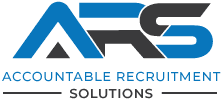Resumes are your marketing tool, therefore your resume needs to ensure that you stand out from your competitors!
In today’s competitive market taking the time to construct your resume is paramount.
Remember your resume needs to be tailored to each job you’re applying for . The ‘one size fits all’ resume simply does not work.
• Career Objective – unless extremely targeted to a specific industry, avoid! People do make the mistake of making career objectives too wordy and irrelevant. My tip is to avoid.
• Irrelevant Employment experience – minimise work experience of over 15 years . Highlight and emphasise the skills that match the role.
• Physical description of yourself including photo – this is not relevant on a professional document. People make judgments whether good or bad, avoid this all together.
• Interests – although ok, make sure list is short and concise.
• Inappropriate contact information – I am referring to non-professional email addresses which are a complete ‘no no’ on a professional document.
• Creative fonts – your resume needs to be clear. Avoid the use of fonts that are difficult to read. The standard font size is 11. Suggested fonts – Times New Roman or Arial.
• Poor use of grammar – avoid slang and complicated acronyms.
• Achievements – make sure they are actual achievements. People do make the mistake of highlighting achievements on their resumes, however fails to impress when the reader is reading.
